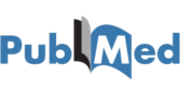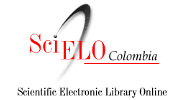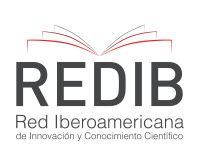Enfermedad tiroidea y gestación en el servicio de alto riesgo obstétrico del Hospital San Vicente de Paúl Medellín 1982-1990
DOI:
https://doi.org/10.18597/rcog.820Palabras clave:
Enfermedad tiroidea, hipertiroidismo, hipotiroidismo, resultado embarazoResumen
Se realizó un estudio descriptivo, retrospectivo de pacientes embarazadas y con enfermedad tiroidea asociada, que consultaron al Servicio de Alto Riesgo Obstétrico del Hospital Universitario San Vicente de Paúl de Medellín, en el período comprendido entre el 1º de enero de 1982 y el 31 de diciembre de 1990. Se incluyeron aquellas a las que fue posible recopilar todos los datos del formato diseñado para tal fin y que además del control de alto riesgo tuvieron su parto en el Hospital Universitario San Vicente de Paúl.
Se seleccionaron 83 pacientes, siendo el 48,2% hipertiroideas y el 51,8% hipotiroideas. EI 5O% de las pacientes hipertiroideas tenían enfermedad de Graves y el 20% de las hipotiroideas enfermedad de Hashimoto.
El antecedente de infertilidad fue tres veces más frecuente entre las hipotiroideas. Los partos intervenidos se presentaron como antecedente del embarazo anterior en el 25% de las hipertiroideas y sólo en el 13,8% de las hipotiroideas.
El 7,2% de las pacientes terminaron en aborto. Las hipotiroideas presentaron el doble de abortos en el embarazo actual que las hipertiroideas ( 4 versus 2).
El 18,4% de las pacientes hipertiroideas presentaron meconio en el líquido amniótico y el 37,1% sufrimiento fetal.
La hipertensión inducida por el embarazo fue dos veces más frecuente en las hipertiroideas que en las hipotiroideas. Se halló una fuerte asociación estadísticamente significativa entre las pacientes con hipertensión arterial crónica asociada a meconio en líquido amniótico (L. A.) (R.R. = 5,92; P= 0,00456).
Biografía del autor/a
Emilio Alberto Restrepo B.
Residentes de tercer año de Ginecología y Obstetricia.
Alejandro Sierra Lebrun
Residentes de tercer año de Ginecología y Obstetricia.
Luis Javier Castro Naranjo
Ginecobstetra, Profesor U. de A.
Orlando Montoya
Odontólogo, Especialista en Epidemiología Centro Regional La Meseta, Servicio Seccional de Salud de Antioquia.
Referencias bibliográficas
Thomas R. and Reid RL. Review. Thyroid disease and reproductive dysfunction: A review; Obstet. Gynecol. 1987; 70: 789-798.
Belchetz PE. Thyroid disease in pregnancy. British. Med. J. 1987; 294: 264-265.
Gibson M. and Tulchinsky D. The maternal thyroid . Tulchinsky, D. and Ryan K. Maternal fetal endocrinoloy, Saunders, 1980.
Becks G. and Burrow GN. Thyroid diseases. The Med. Clin. North. Am. 1991; 75: 121-151.
Romano Retal. The effects of Iodoprophylaxis on thyroid size during pregnancy. Am. J. Obstet. Gynecol. 1991; 164: 482-485.
Me Dougall JR. Hyperthyroidism and Maternal Fetal Thyroid Hormone Metabolism. In: Endocrine Disorders in Pregnancy, Editores: Brody S, Ueland K, Kase N, Norwalk, Appleton and Lang. 1989; 151-175.
Gómez G., Camacho R. y González L. Enfermedad tiroidea y embarazo. Rev. Col. Obstet. Ginecol. 1991; 42: 125-131.
Serup J and Petersen S. Hyperthyroidism during pregnancy treated with propylthiouracil; Acta Obstet. Gynecol. Scand. 1987; 56: 463-466.
Burrow GN. The management of thyrotoxicosis in pregnancy: N. Eng.J. Med. 1985; 313:562.
Morales SP. Tiroides y Embarazo. Monografía U. de A. 1987; 63.
Chin RR. and Lho TTH. Thyroxine concentration and outcome of hyperemetic pregnancy. British. J. Obstet. Gynecol. 1988; 95: 507-509.
Page et al. The Pathology of intrauterine thyrotoxicosis: Two cases reports. Obstet. Gynecol. 1988; 72: 479-481.
Easterling TR. et al. Maternal hemodynamics in pregnancies complicated by hypertyroidism. Obstet. Gynecol. 1991; 78: 348-352.
Mitsud N. et al. Risk factors for develop mental disorders in infants born to women with Grave' s disease. Obstet. Gynecol. 1992; 80: 359- 364.
Danon M. Enfermedades del tiroides y embarazo. Cifuentes R. Obstetricia de Alto Riesgo. tercera edición, Cali, Carvajal1991; 158-251.
Noiza G et al Early prenatal diagnosis and therapy off fetal hypothyroid goiter. Fetal diagn-ther, 1992; 7(2): 138-143.
Morrotanó N., Noh J., Gyanagi H. et al. Antithyroid drug therapy for Grave's Disease during pregnancy: Optim regimen for fetal thyroid Status; Obstet. and Gynecol Survey, 378-379.
Peronen F. et al. Women on thyroid hormone therapy. Pregnáncy course; fetal outcome and Amniotic fluid thyroid hormone level. Obstet. and Gynecol. 1984; 63: 635.
Pruyn SC et al. Long-Term propranol therapy in pregnancy: Maternal and fetal outcome. Am. J. Obstet. Gynecol. 1979; 135:485-489.
Tolivo B de conciliis, B and Mantemagro U. Thyroid hormones in the human pregnancy. Acta Obstet. Gynecol. Scand. 1985; 64: 557-559.
Reycraft D. Enfermedad de Graves; Clinic. Obstet. y Ginec. 1983; 3: 745-778.
Bruner et al. Diabetes mellitus and Grave's disease in pregnancy complicated by maternal allergies to antithyroid medication. Obstet. Gynecol. 1988; 72: 443-445.
Morley et al. Thyrotropin-releasing hormone and Thyroid hormones in amniotic fluid. Am. J. Obstet. Gynecol. 1979; 134: 581-584.
Guerrero S. y Reyes B. Hipotiroidismo subclínico en mujeres embarazadas. Rev. Col. Obstet. Ginecol. 1992; 43: 67.
Cómo citar
Descargas
Descargas
Publicado
Número
Sección
Licencia
Derechos de autor 2016 Revista Colombiana de Obstetricia y Ginecología

Esta obra está bajo una licencia internacional Creative Commons Atribución-NoComercial-SinDerivadas 4.0.
| Estadísticas de artículo | |
|---|---|
| Vistas de resúmenes | |
| Vistas de PDF | |
| Descargas de PDF | |
| Vistas de HTML | |
| Otras vistas | |
















